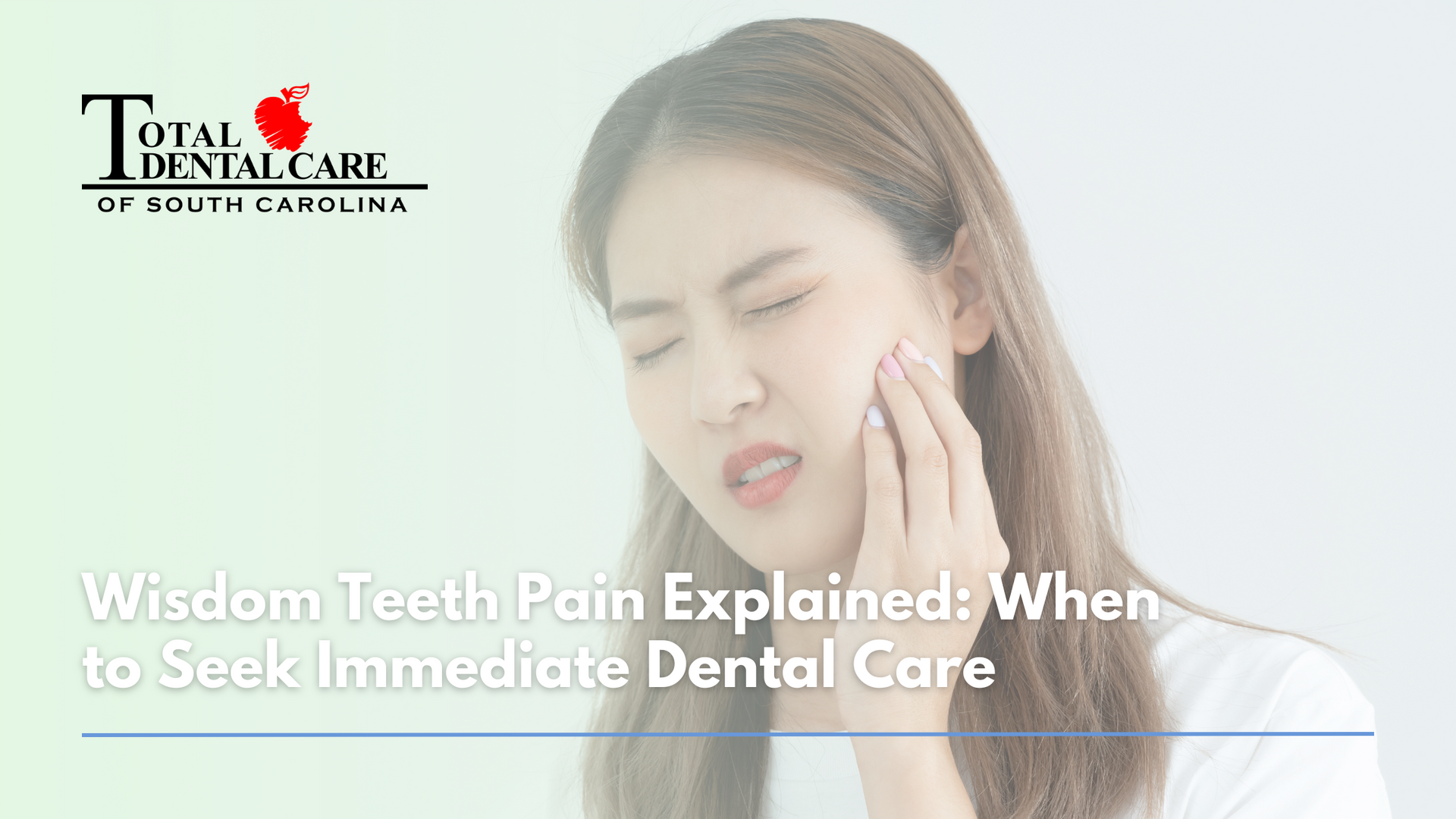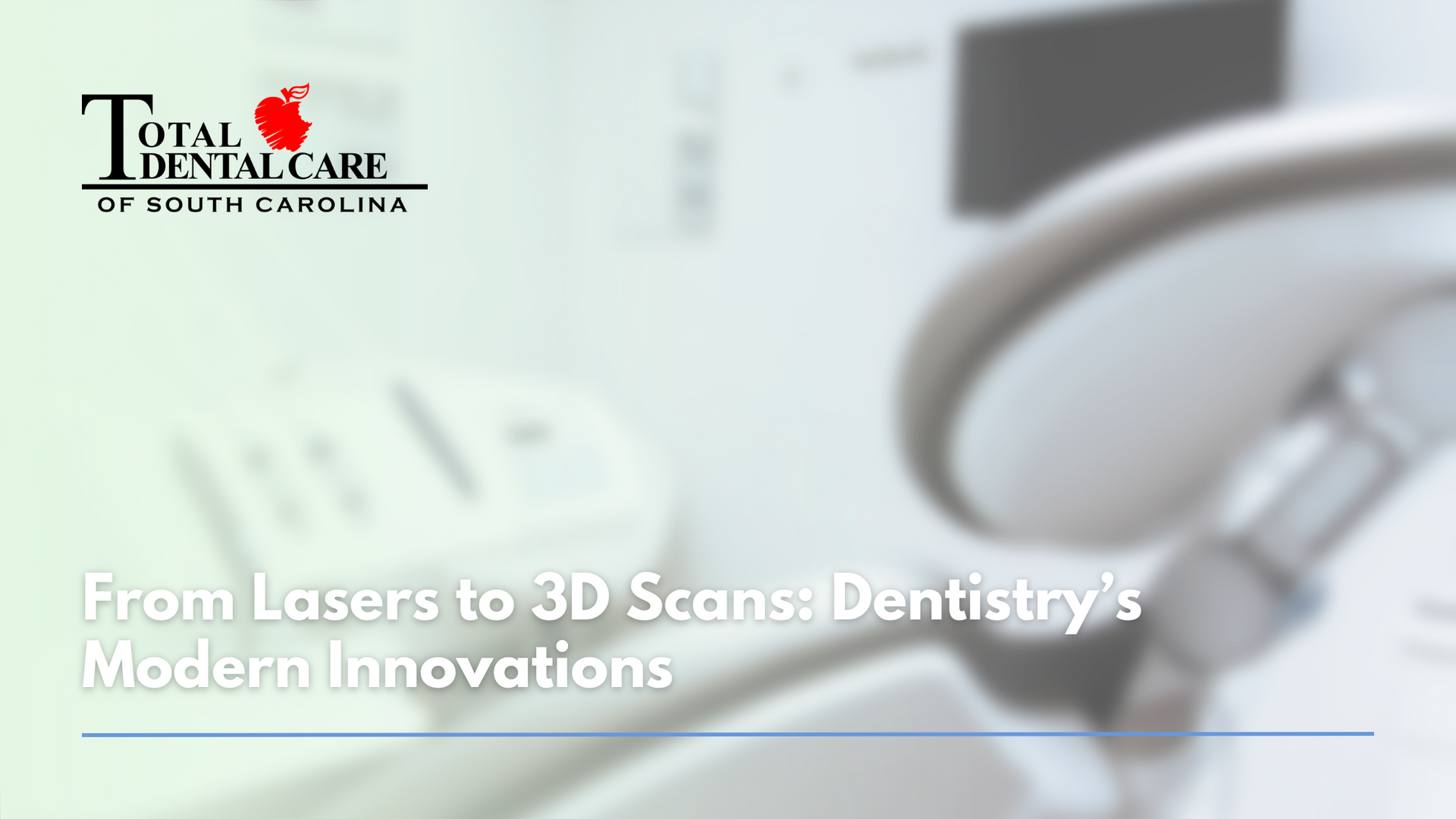Dental Implant Care Made Easy: Single Tooth, All-on-X, and Full-Mouth Options
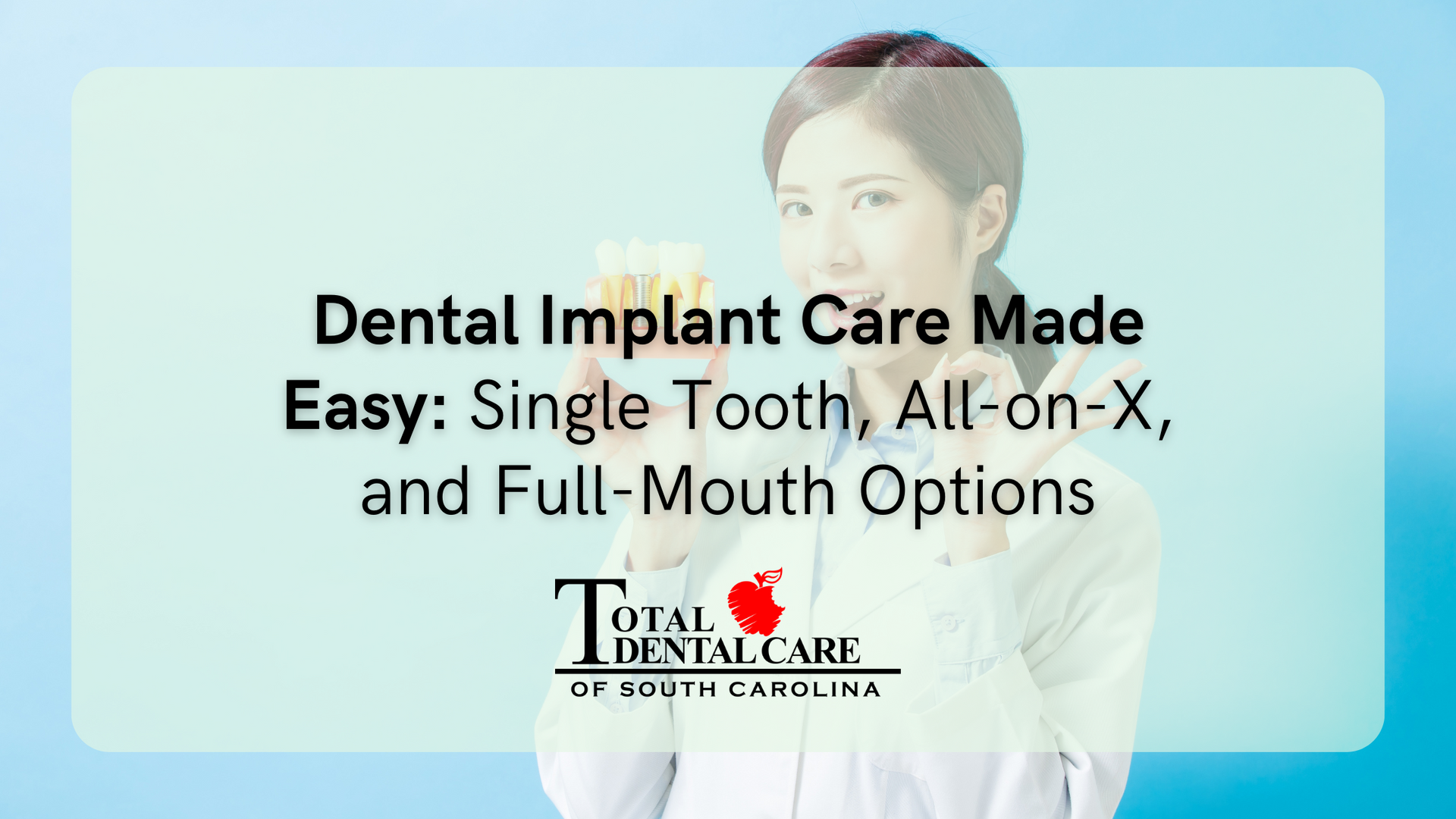
Source: Dr. Marketing
Dental implants are a transformative solution for missing teeth, providing a durable, natural-looking replacement that restores both function and aesthetics. However, as with natural teeth, implants require diligent care to ensure their longevity and prevent complications. Whether you have a single-tooth implant, an All-on-X system, or full-mouth implants, it’s important to understand their specific maintenance needs. This guide explores the general principles of implant care and highlights the unique requirements for each type.
Why Dental Implant Care Matters
Dental implants are designed to last for decades, but their success depends on your commitment to oral hygiene. Poor care can lead to complications like peri-implantitis, an inflammatory condition that affects the gums and bone surrounding the implant, potentially causing implant failure. Regular maintenance not only ensures the longevity of your implants but also helps maintain healthy gums and prevents plaque buildup, which can lead to secondary oral health issues.
Proper implant care also protects your investment. Dental implants represent a significant financial and emotional commitment, and consistent care ensures that you reap the full benefits of their functionality and aesthetics for years to come.
General Guidelines for Implant Care
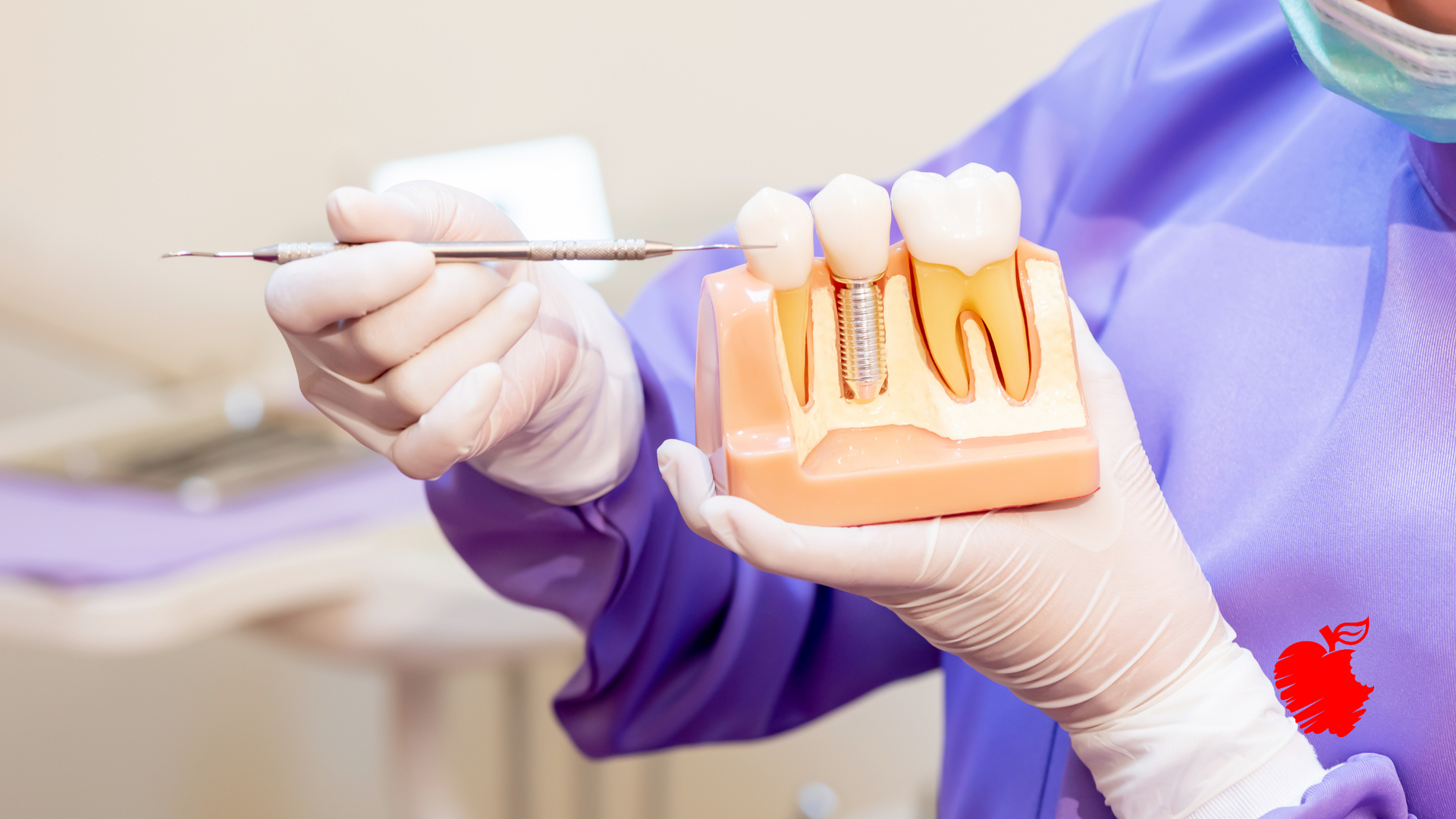
Whether you have a single-tooth implant or a full arch of implants, there are core maintenance practices that apply to all types:
- Daily Brushing
Use a soft-bristle toothbrush or an electric toothbrush to clean your implants and surrounding gums thoroughly. Electric toothbrushes are particularly effective for plaque removal and gentle enough to avoid gum irritation. - Flossing
Dental implants require meticulous flossing to remove debris and plaque. Use implant-specific floss or water flossers to clean the spaces between implants and along the gum line. - Antimicrobial Mouthwash
Rinsing with an antimicrobial mouthwash reduces bacteria in the mouth, helping prevent gum disease and peri-implantitis. - Avoid Abrasive Products
Steer clear of stiff-bristle toothbrushes and abrasive toothpaste, which can damage the implant surface and irritate gums. - Routine Dental Visits
Schedule regular check-ups and professional cleanings. Our hygienists and dentists use specialized tools to clean hard-to-reach areas around implants and monitor for potential complications.
Caring for Single-Tooth Implants
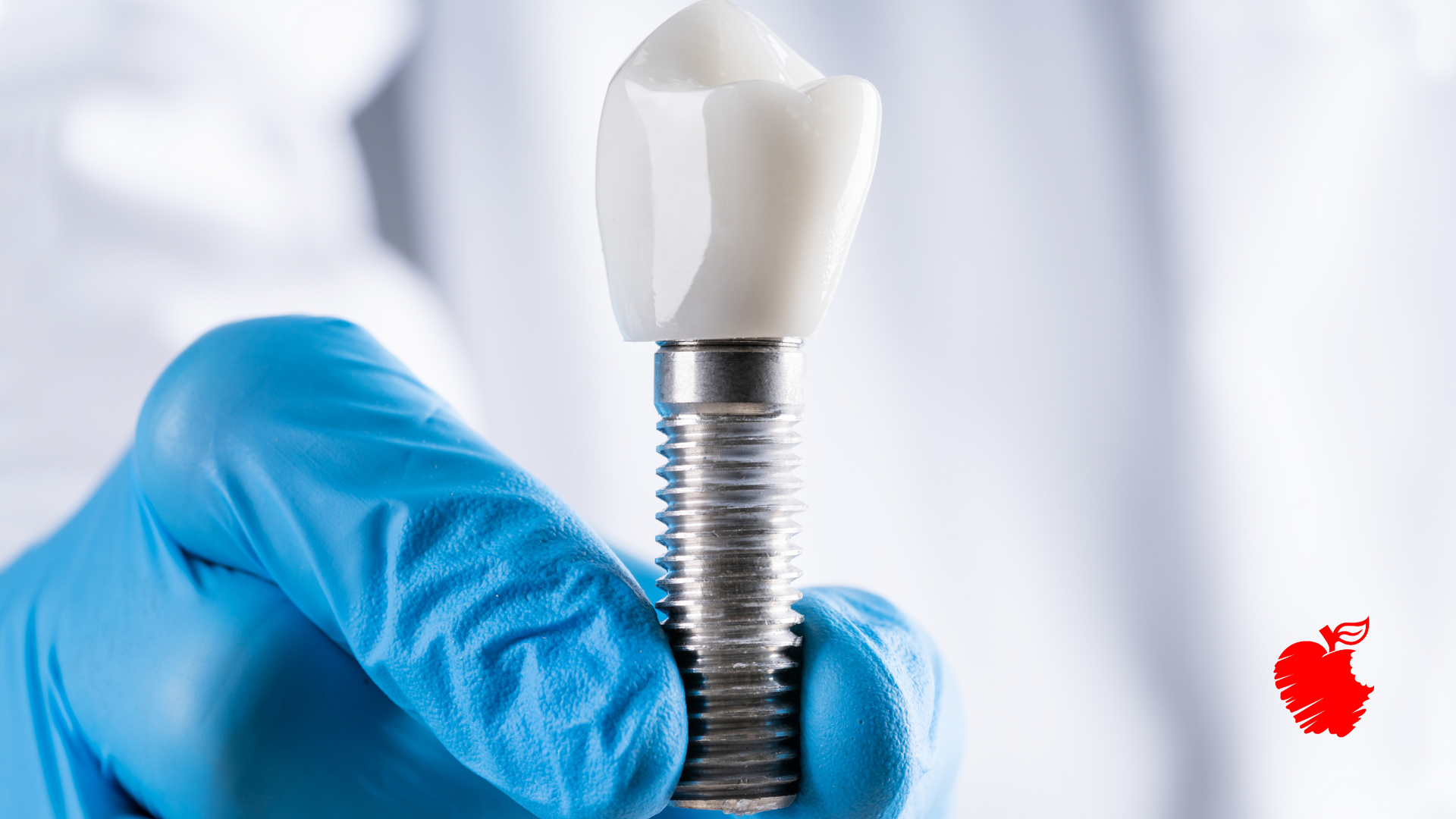
Single-tooth implants are the simplest to maintain because they mimic the care routine for a natural tooth. These implants consist of a titanium post surgically placed into the jawbone, an abutment, and a crown that resembles a natural tooth.
Daily Care for Single-Tooth Implants
Brush the implant crown as you would a natural tooth, ensuring you clean around the gum line where bacteria can accumulate. Flossing is particularly important for preventing plaque buildup between the implant and neighboring teeth. Interdental brushes or water flossers can be especially useful for reaching these areas without causing irritation.
What to Avoid With Single Tooth Dental Implants
- Excessive Force: Avoid chewing on hard objects like ice or hard candies, which can damage the implant crown or put stress on the implant.
- Smoking: Smoking impairs healing and increases the risk of gum disease, both of which can compromise the longevity of your implant.
By following these practices, a single-tooth implant can last for decades while maintaining its appearance and function.
Caring for All-on-X Implants
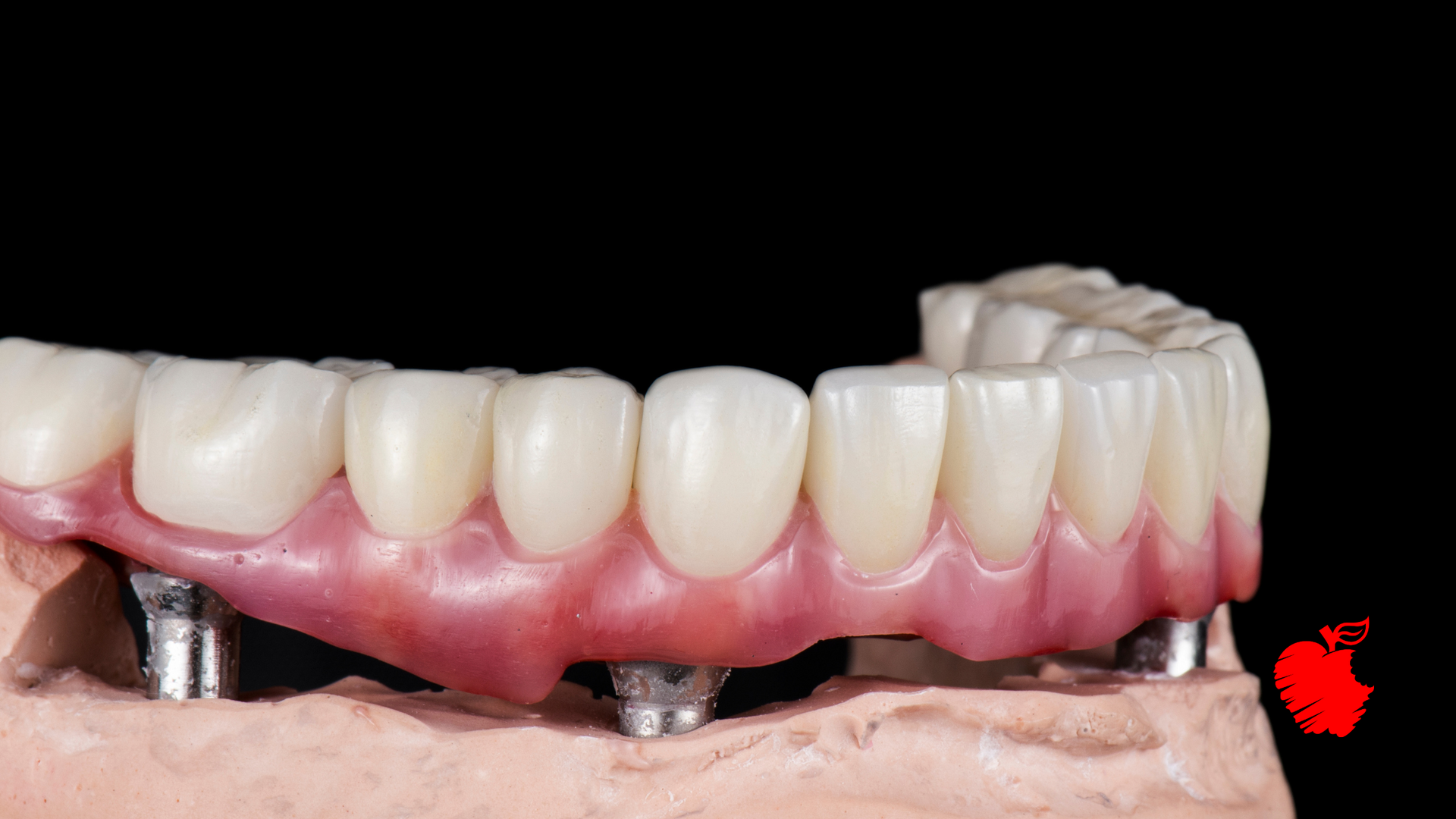
The All-on-X system, often referred to as All-on-4 or All-on-6, is a fixed prosthesis supported by four to six strategically placed implants. It replaces an entire arch of teeth and is a popular choice for patients with extensive tooth loss.
Unique Challenges
Unlike single-tooth implants, All-on-X systems involve a prosthesis that spans multiple implants, creating areas where food particles and plaque can accumulate beneath the bridge. This makes cleaning underneath the prosthesis crucial.
Daily Cleaning Routine
Use a soft-bristle toothbrush or electric toothbrush to clean the prosthetic teeth. Pay close attention to the gum line where the prosthesis meets the gums. A water flosser is highly effective for dislodging food particles and plaque from underneath the bridge. If using interdental brushes, ensure they are designed for implants to avoid scratching the surface.
Professional Maintenance
Regular dental check-ups are critical for All-on-X systems. Our dentists at Total Dental Care of South Carolina use specialized tools to clean under the prosthesis and inspect the implants for signs of wear or inflammation. Depending on the material used for your prosthesis, polishing may also be necessary to maintain its appearance.
Caring for Full-Mouth Implants

Full-mouth implants involve multiple individual implants or a combination of bridges and implants that replace all teeth in the upper and lower jaws. This comprehensive solution requires an advanced hygiene routine to ensure each implant and its prosthesis remain in excellent condition.
Detailed Daily Care
Brush your implants twice a day using an electric toothbrush with a soft-bristle head. Cleaning each implant thoroughly is crucial to prevent gum inflammation. Floss around each implant, using implant-specific tools to ensure no debris is left behind. For bridges, a water flosser can clean areas beneath the prosthetic where traditional floss cannot reach.
Dietary Considerations
Avoid sticky, hard, or overly chewy foods that could damage the prosthetics or place undue pressure on the implants. A balanced diet rich in vitamins and minerals will support overall oral health and healing.
Regular Check-Ups
Full-mouth implants require frequent professional cleanings and examinations. During these visits, our dentist will check the stability of the implants, clean hard-to-reach areas, and ensure that the prosthetics remain securely attached.
Common Complications and How to Avoid Them

While dental implants boast a high success rate, improper care or lifestyle habits can lead to complications. Understanding these issues and taking proactive measures can help you prevent problems and ensure the longevity of your implants. Below are some common complications and how to manage or avoid them.
Dental Implant Complication: Peri-Implantitis
Peri-implantitis is an inflammatory condition that affects the soft and hard tissues around a dental implant. It’s often caused by a buildup of plaque and bacteria around the implant site, leading to gum inflammation and, in severe cases, bone loss that can compromise the implant’s stability.
Symptoms of Peri-Implantitis:
- Red, swollen, or tender gums around the implant
- Bleeding when brushing or flossing
- Pus or discharge from the gum line
- Bad breath or a persistent bad taste in the mouth
- Bone loss visible on X-rays
Prevention and Management:
Maintaining excellent oral hygiene is crucial in preventing peri-implantitis. Brush and floss daily, paying special attention to the area around the implant. Use implant-specific cleaning tools like interdental brushes or a water flosser to clean hard-to-reach areas. Regular dental check-ups are essential, as your dentist can monitor for early signs of inflammation and take action before the condition worsens. Avoid smoking, as it significantly increases the risk of peri-implantitis by impairing gum healing and reducing blood flow to the tissues.
If peri-implantitis develops, your dentist may recommend a combination of professional cleaning, antimicrobial treatments, and, in severe cases, surgical intervention to restore the health of the surrounding tissues.
Dental Implant Complication: Implant Failure
Although rare, dental implant failure can occur due to several factors. Primary causes include poor oral hygiene, smoking, insufficient bone density, or excessive stress placed on the implant from biting or grinding.
Signs of Implant Failure:
- Persistent pain or discomfort at the implant site
- Loosening of the implant or prosthetic crown
- Gum recession around the implant
- Inability to chew comfortably
Risk Factors:
- Smoking: Tobacco use hinders the healing process and increases the risk of infection, making implants more likely to fail.
- Poor Oral Hygiene: Neglecting to clean around the implant can lead to infection and eventual failure.
- Bruxism (Teeth Grinding): Excessive force from grinding or clenching can weaken the implant over time.
- Medical Conditions: Conditions like diabetes or osteoporosis can affect bone health and healing, increasing the likelihood of implant failure.
Prevention and Management:
To prevent implant failure, maintain a consistent oral hygiene routine and follow your dentist’s care instructions. If you grind your teeth, consider wearing a custom night guard to reduce stress on the implant. Avoid habits like chewing on ice, pens, or other hard objects, as these can damage the implant or prosthetic. For smokers, quitting tobacco is one of the most effective ways to protect your implants and overall oral health.
If an implant begins to fail, our dentists in Cherry Hill, New Jersey may need to remove it and perform additional procedures, such as bone grafting, before placing a new implant.
Dental Implant Complication: Prosthetic Wear
The prosthetic components of dental implants, such as crowns, bridges, or dentures, are designed to be durable but are not immune to wear and tear. Over time, factors like biting pressure, grinding, and exposure to abrasive substances can cause the prosthetics to lose their original appearance or function.
Common Issues with Prosthetics:
- Chipping or cracking of the porcelain or resin material
- Discoloration or staining over time
- Loosening of the prosthetic attachment to the implant
Prevention and Maintenance:
Proper cleaning is essential to preserving the appearance and functionality of the prosthetic. Brush with non-abrasive toothpaste and a soft-bristle toothbrush to avoid scratching the surface. Avoid consuming excessively hard or sticky foods that could damage the prosthetic. Regular dental visits allow your dentist to inspect the prosthetics for signs of wear and make necessary adjustments or repairs.
For removable implant-supported dentures, clean them as directed by our dentist, typically by soaking them overnight in a denture-cleaning solution. Fixed prosthetics may require periodic polishing during professional cleanings to maintain their luster and remove any surface stains.
Proactive Steps for Long-Term Success
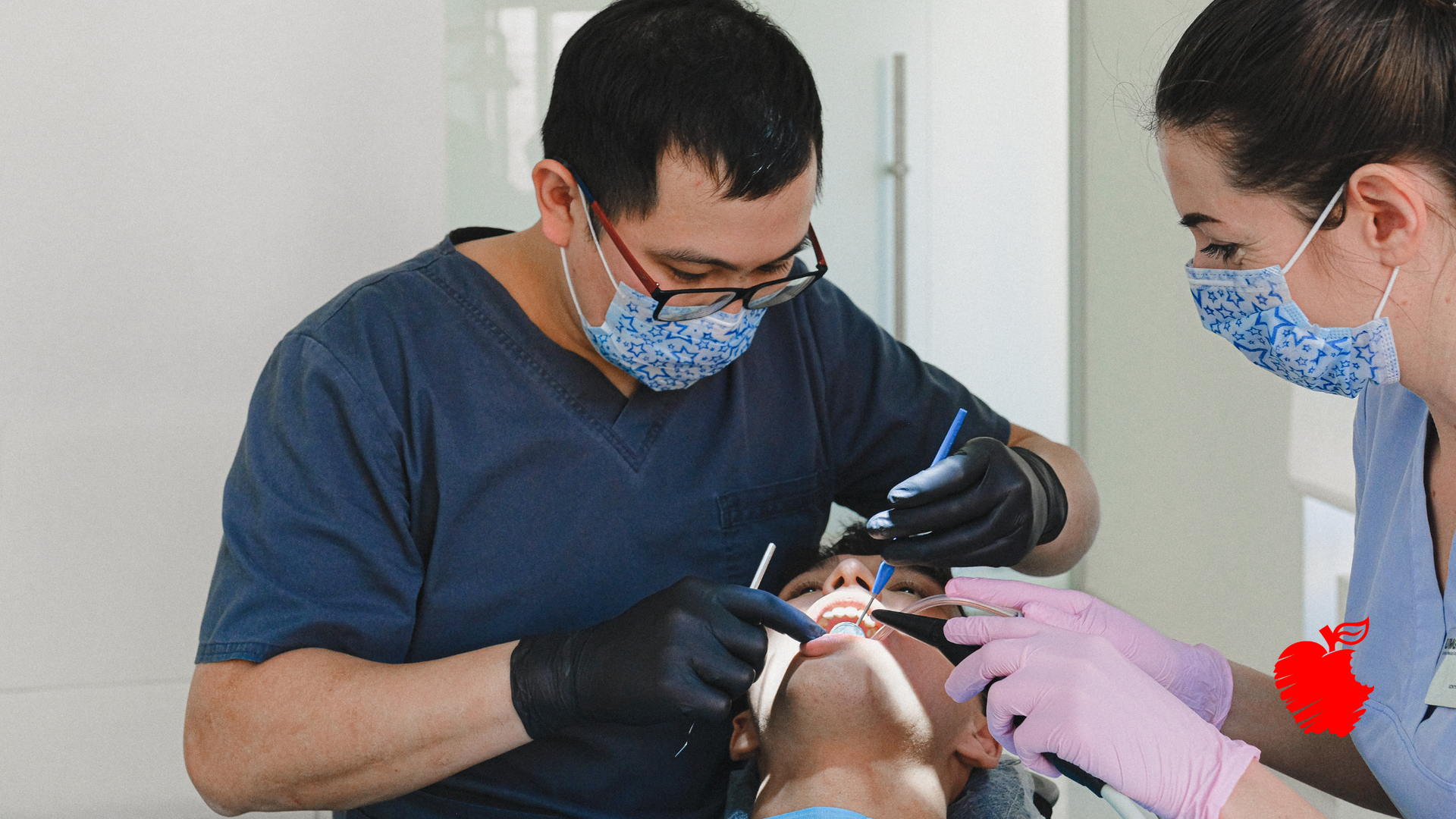
To minimize the risk of complications, combine good at-home care with regular professional maintenance. Keep an eye out for any signs of trouble, such as discomfort, changes in the appearance of the gums, or loosening of the implant or prosthetic. Addressing issues early can prevent more severe problems and ensure your dental implants remain a reliable, long-lasting solution.
If you have concerns about your implants or notice any unusual symptoms, contact our dentist at (803) 798-1670 immediately for an evaluation. By staying proactive, you can protect your investment and enjoy the benefits of your dental implants for many years.
The Key to Long-Lasting Dental Implants

Caring for dental implants, whether a single-tooth implant, an All-on-X system, or full-mouth implants, requires diligence and consistency. By adopting a thorough oral hygiene routine, attending regular dental visits, and addressing any issues promptly, you can ensure the longevity of your implants and maintain a healthy, functional smile.
At Total Dental Care of South Carolina, we specialize in comprehensive implant care and are here to guide you every step of the way. Whether you’re considering implants or looking to optimize your maintenance routine, our team is ready to help. Contact us today to schedule a consultation or follow-up visit, and let us help you protect your investment for a lifetime.

